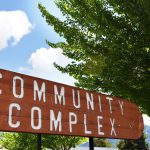Grand Forks, Nelson - the pot lobby is all around us
I didn’t have an issue with the legalization of marijuana and, if truth be told, I applauded Grand Forks councillor Joy Davies for wanting to take a lead in municipal advocacy and change federal and provincial laws.
I also, to some extent, agreed with the Holy Smoke Shop Four (Paul DeFelice, Alan Middlemiss, Kelsey Stratus and Akka Annis) that were arrested for allegedly running a designated dealer program, with the goal of getting rid of street-level dealers in Nelson.
Then came this week’s column subject, and after researching both sides of the argument, I can no longer justify supporting legalization for medical use.
Like councillor Davies, I believed that patients needing medical marijuana should be able to legally access it, either through a supplier they trusted or by growing it themselves. Nevertheless, now I have found that it is unsafe to administer medicine in smoke form and that marijuana smoke contains more than 400 different chemicals, including most of the hazardous chemicals found in tobacco smoke, which can create entirely new health problems. Some other effects directly linked to smoking marijuana are: psychological disorders, memory loss, and distorted perception, loss of motor skills, increased heart rate, and anxiety.
The argument is that the active ingredient, THC, relieves nausea and vomiting in cancer patients and assists with increasing the appetite of AIDs patients (other medical benefits are touted as well). Those contentions are made meaningless, though, by the fact that THC is readily available in pill form by prescription – and without the secondary affects of smoking marijuana.
It has also become impossible for me to support advocates who wish to legalize marijuana for recreational use, as it appears the Holy Smoke Shop Four set out to do.
On the surface, legalization advocates present an appealing, but simplistic argument: that by legalizing drugs we will create vast sums of money, reduce crime and take the drug industry away from organized crime and gangs.
I only had to look at countries that have legalized drugs to see that route has not, and cannot be, successful.
In the 1900s, China legalized opium. This resulted in 90 million addicts and a half century to repair the damage. In the late 1980s, Switzerland opened a “legalized drug” area and addicts were given drugs, clean needles and medical care. “Needle Park”, as it became known, was a place of open gang warfare where even the police feared to go, and officials ended the experiment, conceding that it had evolved into a grotesque spectacle. Even in modern day Netherlands (which is considered by many advocates a success), Amsterdam’s officials have proven that tolerance has led to increased addiction and blame the significant rise in crime on the liberal drug policy, which the city fathers are now rethinking.
I still feel for patients who need to use medical marijuana, but unless we are willing to legalize all drugs, in any amount, for any person and for the lowest possible price, organized crime and gangs will have a use for the drug market. After taking into consideration all the health and societal costs related to legalization, it does not make financial sense; particularly for recreational use, and since there is a safer alternative available for medical purposes, I believe advocates, like councillor Davies, should instead be questioning why alcohol and tobacco use remain legal.
But that’s a whole new column.
























Comments